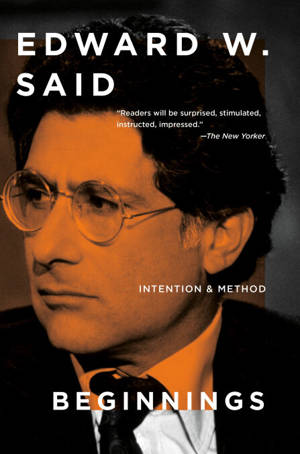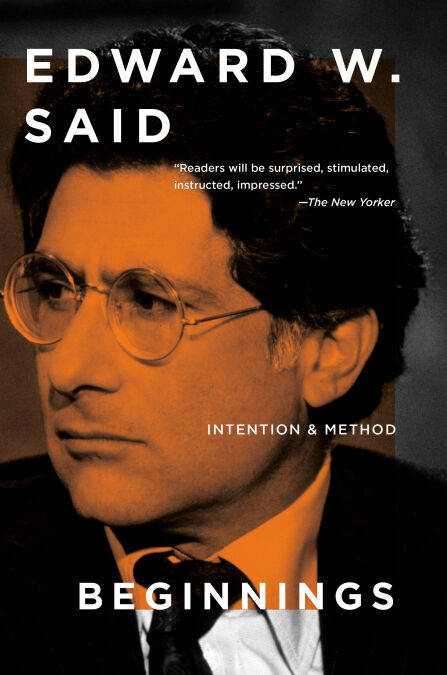
- Afhalen na 1 uur in een winkel met voorraad
- Gratis thuislevering in België vanaf € 30
- Ruim aanbod met 7 miljoen producten
- Afhalen na 1 uur in een winkel met voorraad
- Gratis thuislevering in België vanaf € 30
- Ruim aanbod met 7 miljoen producten
Zoeken
€ 16,12
+ 16 punten
Uitvoering
Omschrijving
From one of the world's most beloved and outspoken public intellectuals comes an illuminating book on the nature of criticism
"Readers will be surprised, stimulated, instructed, impressed."―The New Yorker
“What is a beginning? What must one do in order to begin? What is special about beginning as an activity or a moment or a place?”
So begins Beginnings, a scintillating work of criticism by Edward W. Said, author of Orientalism, The Question of Palestine, and other seminal works, and one of the most lauded public intellectuals of our time. Tracing humankind’s diverse understandings of what it means to begin throughout history, Said argues that “beginning” is itself a method, the first step in the creation of meaning. It’s what sparks a break from preexisting tradition, and it’s what authorizes new texts to be.
As ever, Said insists on a criticism that is both humane and socially responsible. Beginnings is about much more than writing: it is about imagination and action as well as the constraints on freedom and invention that come from achieving human intention. The result is a classic and necessary treatise on the role of the intellectual and the worth of criticism.
"Readers will be surprised, stimulated, instructed, impressed."―The New Yorker
“What is a beginning? What must one do in order to begin? What is special about beginning as an activity or a moment or a place?”
So begins Beginnings, a scintillating work of criticism by Edward W. Said, author of Orientalism, The Question of Palestine, and other seminal works, and one of the most lauded public intellectuals of our time. Tracing humankind’s diverse understandings of what it means to begin throughout history, Said argues that “beginning” is itself a method, the first step in the creation of meaning. It’s what sparks a break from preexisting tradition, and it’s what authorizes new texts to be.
As ever, Said insists on a criticism that is both humane and socially responsible. Beginnings is about much more than writing: it is about imagination and action as well as the constraints on freedom and invention that come from achieving human intention. The result is a classic and necessary treatise on the role of the intellectual and the worth of criticism.
Specificaties
Betrokkenen
- Auteur(s):
- Uitgeverij:
Inhoud
- Aantal bladzijden:
- 416
- Taal:
- Engels
Eigenschappen
- Productcode (EAN):
- 9798217008674
- Verschijningsdatum:
- 20/10/2025
- Uitvoering:
- E-book
- Beveiligd met:
- Adobe DRM
- Formaat:
- ePub

Alleen bij Standaard Boekhandel
+ 16 punten op je klantenkaart van Standaard Boekhandel
Beoordelingen
We publiceren alleen reviews die voldoen aan de voorwaarden voor reviews. Bekijk onze voorwaarden voor reviews.








